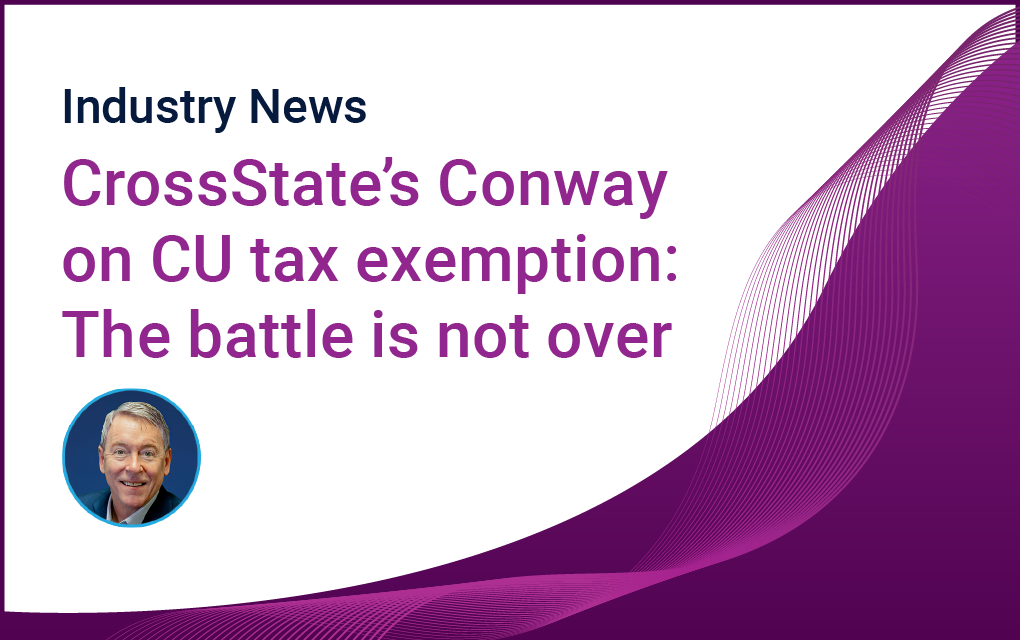INDUSTRY NEWS
The Todd Harper saga has turned into a war of words
Whether the former NCUA board member will ultimately be reinstated is up for conjecture, but if Harper goes down, he’s going down swinging.
It has been one tumultuous month since President Donald Trump fired Todd Harper and Tonya Otsuka from the board of the National Credit Union Administration with no signs of things settling down anytime soon.
Harper said the April 16 removals came without warning or reason, and he called them “ill-conceived and politically motivated.”
Then, in a lawsuit filed April 28 aimed at restoring the three-person board, Harper and Otsuka said their firing was “patently unlawful” and was delivered “without explanation and without any cause.”
The next step in the process is for the plaintiffs to file their reply and opposition to any cross-motion. That must happen on or before May 19.
“I’m optimistic,” Harper wrote in a recent LinkedIn post. “The law is on our side. Congress purposely set up a board structure at the NCUA. I believe that the courts will decide in our favor as we move forward through this process.”
Other industry observers are less certain.
Anthony Hernandez, President and CEO of the Defense Credit Union Council, told Tyfone that it is impossible to predict the outcome of the courts, which will almost certainly be followed by appeals and, perhaps ultimately, a Supreme Court decision.
“The only guarantee is that this process will take time to sort itself out,” Hernandez said. “I do, however, believe we will have a three-person board. Whether that includes Todd Harper and Tanya Otsuka is anyone’s guess.”
Hernandez and DCUC believe a return to a three-person board in an independent NCUA is the best outcome for the industry.
“It is what the industry is used to, and stability is always important when it comes to people’s financial wellbeing,” he said.
During an episode of the Digital Banking Podcast, Hernandez told host Josh DeTar the Harper and Otsuka firings may have been the first step to consolidating the NCUA under the FDIC.
“But I think there’s enough differences between banks and credit unions and our structure, plus the NCUA is funded by credit unions and not taxpayers. So that’s a huge difference,” he said.
Harper did not ingratiate himself with some credit union CEOs during a subsequent interview with the Brookings Institution.
In the interview and social media posts that followed, Harper said some credit unions have strayed far away from serving people of modest means with “sweetheart” executive compensation packages, excessive reliance on overdraft and NSF fees and high-profile stadium naming rights.
Brian Waldron, the CEO of Dort Financial Credit Union, which struck one of those deals with Florida Atlantic University in Boca Raton, bristled at Harper’s comments.
“He could have shared how credit unions provide financial services to members of all demographics. Mr. Harper could have helped share why our tax status should be preserved. Instead, he attacked the industry he claims to advocate for and love,” Waldron wrote in an op-ed for Tyfone.
Harper responded on LinkedIn by saying that as a regulator his job isn’t to be a cheerleader for credit unions but instead to be a steward for the industry.
“As a steward, my job at times is to point out problems so that they can be corrected,” Harper wrote. “[Some credit unions are] making less than 5% of their loans to people with non-prime credit, [are making] purchases of private planes, and even practicing racial redlining in lending.”
Still, some CEOs believe Harper has been guilty of using his post as a political weapon.
Andy Kempf, CEO of 4Front Credit Union in Michigan, wrote that Harper’s comments and the actions of the NCUA field examiners are always at odds.
“The dysfunction he created caused confusion in the marketplace and the disinformation he continues to spout is what has created the landscape he is now so concerned about,” Kempf wrote.
Harper has also jabbed at credit union trade groups for “not coming out loudly” to advocate for his and Otsuka’s reinstatement to the NCUA board.
America’s Credit Unions, instead, said Harper has been trying to paint the picture of a broken credit union industry since Trump fired him.
“Harper has been outspoken about his criticisms and concerns for the industry,” the group’s CEO Jim Nussle said. “While some are trying to drive a wedge between large and small credit unions, it is not asset size, nor how credit unions spend their marketing dollars, nor the size of their field of membership that defines a credit union.”
But Harper, of course, does have his supporters in the industry.
Amplify Credit Union’s CEO Kendall Garrison, for one, replied to a LinkedIn post suggesting that the trade groups need to take stronger action on behalf of Harper and Otsuka.
“The trades are busy making the claim that ‘members want fees’ and enjoining lawsuits with payday lenders. They damn sure aren’t showing up to this fight,” Garrison wrote.








